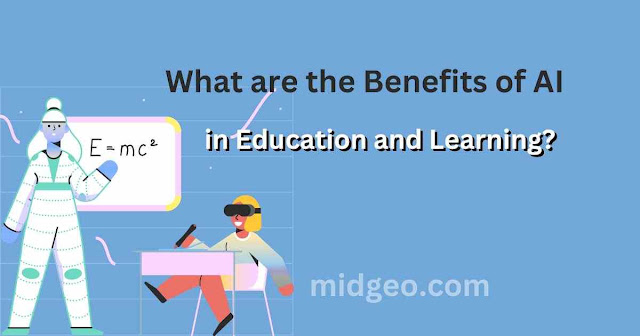Artificial Intelligence (AI) has brought about numerous benefits in the field of education and learning. Here are some of the key advantages:
Personalized Learning: AI can create personalized learning experiences by analyzing students' performance and tailoring content to their individual needs and abilities. This adaptive learning approach helps students progress at their own pace and grasp concepts more effectively.
Enhanced Engagement: AI-powered educational tools, such as interactive simulations and gamified learning platforms, make learning more engaging and fun. This can improve student motivation and retention of information.
Accessibility and Inclusivity: AI can assist students with disabilities by providing customized resources and accommodations, such as text-to-speech and speech-to-text capabilities. This promotes inclusivity and ensures that all students have equal access to education.
Automation of Administrative Tasks: AI can streamline administrative tasks for educators and institutions, including grading assignments, managing schedules, and handling routine administrative work. This allows teachers to allocate more time to instruction and student support.
Data-Driven Insights: AI can analyze vast amounts of data to provide educators with valuable insights into student performance and learning trends. This data-driven approach enables timely intervention and improves educational outcomes.
Virtual Assistants and Chatbots: AI-powered chatbots and virtual assistants can answer students' questions and provide support around the clock. This instant access to information can enhance the learning experience and reduce wait times for assistance.
Language Translation and Multilingual Support: AI can break language barriers by offering real-time translation services, making educational content more accessible to students from diverse linguistic backgrounds.
Continuous Feedback: AI can provide immediate feedback on assignments and assessments, helping students understand their mistakes and areas that need improvement. This rapid feedback loop supports a more effective learning process.
Content Recommendation: AI can suggest relevant educational resources, such as articles, videos, or practice exercises, based on a student's current learning progress and interests, facilitating self-directed learning.
Predictive Analysis: AI can predict future learning outcomes and identify at-risk students, enabling educators to intervene proactively and provide additional support to those who may be struggling.
Remote Learning Support: AI has played a significant role in enabling remote and online learning by providing tools for virtual classrooms, video conferencing, and collaborative platforms.
Cost-Efficiency: AI can reduce the cost of education by automating certain tasks, such as grading, and by providing scalable solutions that can reach a wider audience with minimal additional resources.
Lifelong Learning: AI can support lifelong learning by offering personalized educational content and opportunities for skill development throughout one's career, adapting to changing needs and demands.
While AI offers substantial benefits in education and learning, it's important to use these technologies responsibly and ethically, ensuring that data privacy and security are maintained and that AI tools are used to complement, rather than replace, the role of educators.

